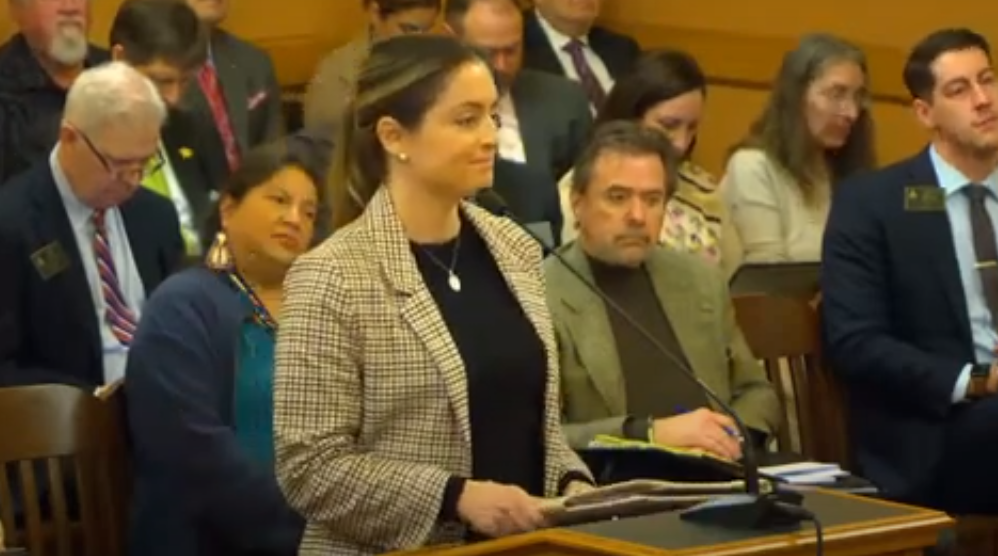Bill that provides tax credits to parents with children in nongovernment schools receives hearing

The Senate Committee on Assessment and Taxation held a hearing for Senate Bill 509 on Wednesday, March 6. The bill would provide an income tax credit for taxpayers with children that are eligible to be enrolled in K-12 schooling, but are not enrolled in a government school.
According to the bill, “for each dependent child enrolled during the tax year in a private school accredited by the state board of education or a regional or national accrediting agency” parents will receive an education opportunity tax credit equal to “75 percent of the amount of BASE aid as determined in K.S.A. 72-5132, and amendments thereto.” For each child enrolled in a nonaccredited private school (homeschooled), parents receive “50 percent of the amount of BASE aid as determined in K.S.A. 72-5132, and amendments thereto.”
“The reason we support this legislation is because we know every kid is unique,” Public Affairs Director for yes. every kid. Shannon Pahls said. “Therefore, a one-size fits all system does not work for every child, and therefore families who know their child the best should be the ones in the drivers seat of their kids education.”
Pahls also provided statistics including a recent poll by YouGov which found that two-thirds of the general public and 80 percent of parents of K12 students support educational tax credits and two-thirds of parents believe this will improve education in the U.S.
“School systems, as we all know, have become increasingly bureaucratic, and increasingly centralized,” Legislative Director for Americans for Prosperity Michael Austin said. “We have all seen the stats. We’ve all seen the data about how much money is being spent in the public school system, and we’re not seeing that bang for our buck… The only solution, I think, is to give parents more control, more power over their child’s schooling. It is the only way, I think, to provide more competition and quality in those schools. Not only that, but this is not an entirely new concept. We all understand how competition, or giving… people more choices can lead to better outcomes.”
Opponents to the educational freedom bill also gave testimony.
“No matter what it’s called, any scheme to divert tax dollars from public schools is a voucher,” Assistant Executive of Director Advocacy for Kansas Association of School Boards Leah Fliter said. “Vouchers offend Kansas values. We should not support forcing Kansas taxpayers to subsidize tuition to existing private school students through vouchers. And we shouldn’t support vouchers for unaccredited schools with no accountability.”
It’s important to know that parents who homeschool their children or send their children to a private school or other form of alternative schooling are currently forced by the government to pay for education twice. The first time for their own children’s education, and the second time for those in government schools. Therefore, this isn’t really “subsidizing tuition” this is simply giving parents back the money the government forcefully took from them for a service they don’t use.
To read the full 2-page bill, click here.
Thanks for reading. Be sure to share and subscribe. You can also help support independent journalism in Kansas by buying me a coffee at buymeacoffee.com/kscon.

Ian Brannan
Ian Brannan is an independent journalist who founded The Kansas Constitutional in April 2022. His work focuses on issues including abortion, Convention of States, drug policy, education, government, LGBT issues, media, and more.
